Is Film School Worth It? Dropout and Graduate Perspectives
We asked two professionals in the industry what their opinions are on film school and whether they think it’s worth it or not. We talked to Harrison Kracht, who is a grip in I.A.T.S.E Local 491 and has worked on big-budget features and series such as Ford v. Ferrari and Outer Banks. He attended film school for a couple of years but decided not to continue. Out of respect for Harrison and the program, since everyone’s experience with film school is different, we decided to remove the name of the school Harrison attended. But we will say that it is a major, top-tier film program.
We also talked to Kevin Mead, director of The Film Fund-funded film Sunday Dinner and film school graduate. He attended the American Film Institute.
They both had a lot to say about the benefits and drawbacks of film school. They work on extremely different positions on set, and they’re at different stages of their careers, but there’s a lot of wisdom to be gained from their answers regardless, so read on if you’re debating film school.
If you have a project that needs funding, check out our funding opportunities.
What’s typically your position on set?
Harrison: I work mostly in Savannah, Georgia and Charleston, South Carolina when I’m working on union jobs. Typically my position on set changes depending on the size of the project. When I work on television and features, I typically work as a grip and sometimes as a dolly grip. This entirely depends on what the show calls me for.
If I get hired on some smaller non-union sets such as commercials, music videos, or shorts, I tend to work also as a key grip and a dolly grip sometimes, but more commonly as a Steadicam operator.
Kevin: These days, I’m lucky enough to be directing most of the time on set. But pre-pandemic, I’d gotten really good at showing up on other sets and eating the snacks, too.
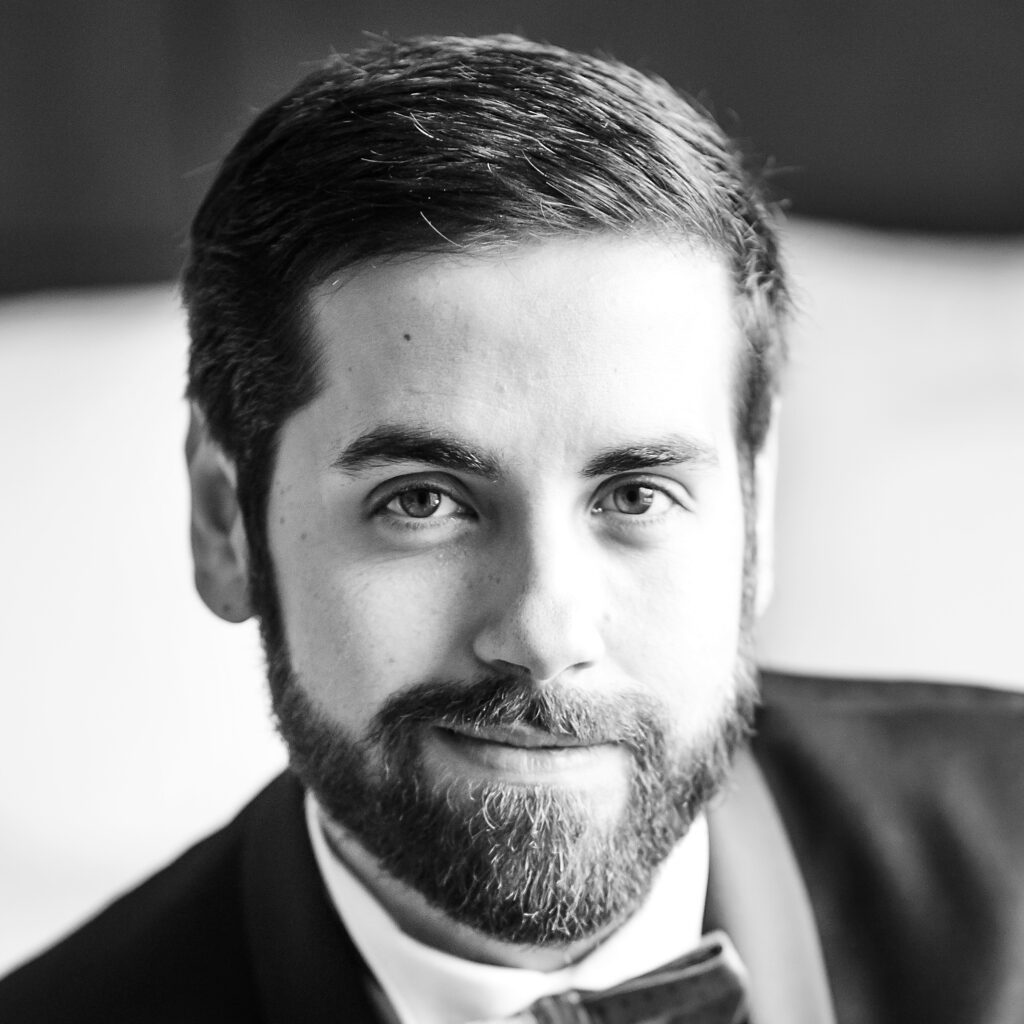
Why did you decide to attend or drop out of film school?
H: When I graduated from high school, I decided to attend college for a degree in film and television. During my freshman year, I had quite a good time and learned a lot in my core design classes and art classes. Also, I met a ton of great people I still work with today, some of them on indie sets and others on professional sets.
Once I started to take my degree classes, this is where my outlook on film school kind of changed. I started to feel that what I was learning in my degree classes were things I had already learned years ago on YouTube. What I was “learning” from my classes I was [already] learning by trial and error, not really from the professor. During the beginning of my second year of school, I started to feel that the amount I was paying was not being reflected in what I was learning.
On top of that, many of my professors had never really worked in the industry for any meaningful amount of time, or [they] had been out [of the industry] for so long that what they knew had become relatively irrelevant. A small portion of them hadn’t even ever worked in the film industry at all and only went to college, got a master’s degree, and then began to teach.
Around that time I also started working on a small feature in town as a grip during my days off from class and even skipped class a few days to work. This is what really opened my eyes to how much I had not learned from school and how little school was preparing me for my career ahead. After that, I left school and started just working.
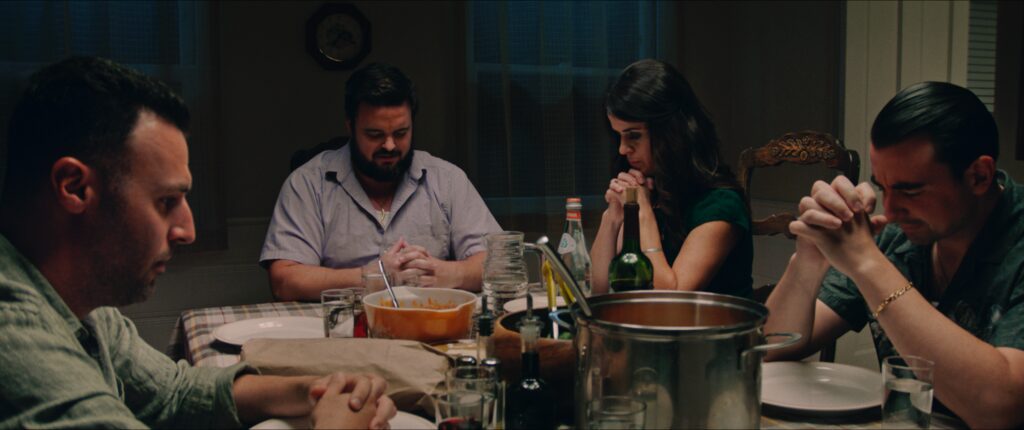
K: This question — like every question about film school, in my humble opinion— is messier than it appears at first glance. But here’s my best attempt:
The first reason that comes to mind is frustration. I applied in 2013 and at the time I was hustling really hard, but felt like I wasn’t getting where I wanted. I’d done a handful of shorts, had written/directed/edited a bunch of web content and some branded stuff, had co-written a play that won a festival and got published, had co-written/directed a pilot that won the NYTVF and got me and the production company I was part of a development deal (which sort of fizzled out)… but in my super self critical mind, it felt like it was all adding up to nothing. While I was hustling, it was the only thing I really cared about. But after some time, I kind of zoomed out and wasn’t really sure what it was doing for me. In retrospect, it was all invaluable experience: I was literally learning how to do the job. And I was getting closer to “making it as a filmmaker” with each project than I ever gave myself credit for. But there was definitely a considerable “f*ck it, nothing else is working, let’s try this” component to my decision.
And that kind of went hand-in-hand with the feeling of urgency to “level up.” It’s not a unique story anymore to be the weird kid who grew up with a camera always in their hand, but that was kind of all I had access to in the way of film education. That and Special Features which I watched obsessively. So I grew up with this romantic image of what it was like to be on a set and make a movie, in the nuts-and-bolts sense. I really loved the idea not just of making movies, but of WORKING on movie sets. But it felt like everything I was trying that I THOUGHT would help get me there wasn’t clicking… it didn’t feel like I was getting closer to that idea in my mind (and like a lot of us, patience is not my strong suit).
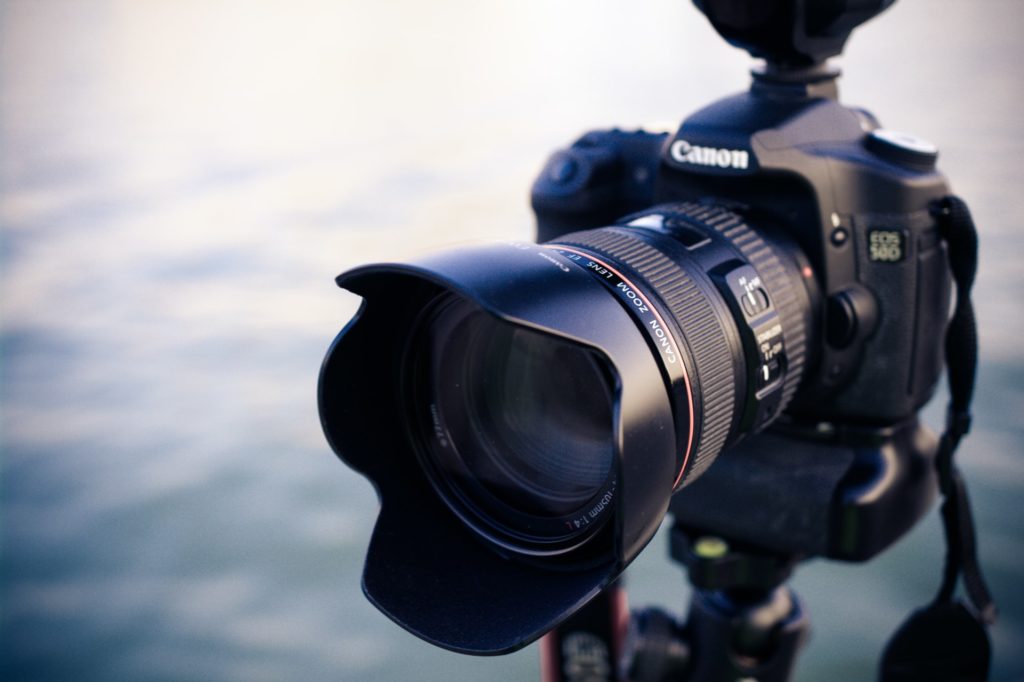
So I became fixated on “formalizing my craft.” I had a certain level of talent and taste and had gotten close enough in other pursuits to believe I could make this happen, but I didn’t know how lights worked, or which lenses did what, or how to deal with actors who weren’t my friends, or what everyone even does on set. I didn’t know much other than what I had personally experienced. I felt the strong urge to “go pro” and this seemed like one way to do that.
And the last reason I’ll give you— and this is as honest as I can be about it—I wanted validation. When I applied, I knew I was moving to LA already, but I wasn’t really dead set on going to grad school. I wanted to. But it wasn’t a make or break component of my plan. But part of me wanted to apply to the best programs I could to just see— “could I measure up to those other kids?”—and I was lucky enough to kind of hit the jackpot getting into the AFI Conservatory. That really felt like a “holy shit, maybe I can actually hold my own” moment. After that, paired with the pedigree of the program, it was a no-brainer for me that I was going to go.
What was the most valuable thing you got from film school? The least?
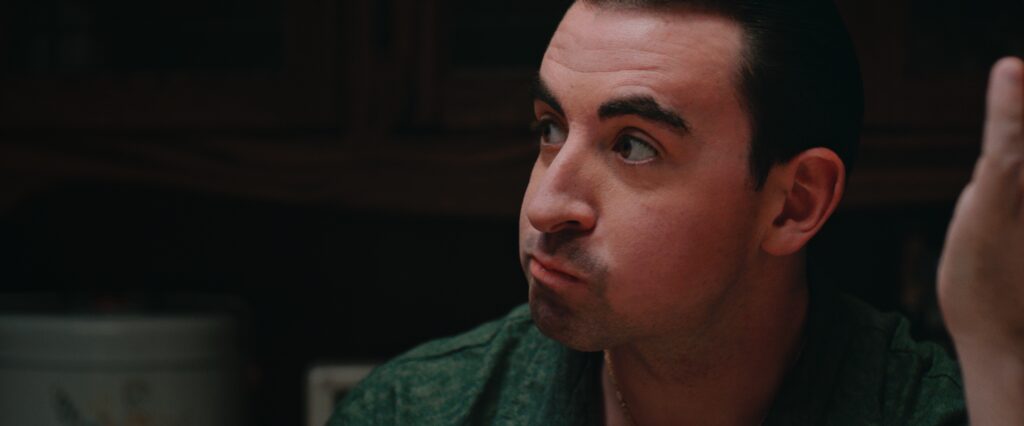
H: The most valuable thing I’ve gotten from film school has been to connections I have made. There’s no doubt in my mind that I would not be where I am in my career today without having met a few key friends and mentors. Many of the people I went to school with I still work with on a regular basis on a mix of passion projects or big-budget television/movies. Being able to forge these relationships is something I would never be able to do if I’d stayed at home or even went to a state school.
The second most valuable thing I had learned was the ability to fail. While I was still attending school, I worked on over fifty student projects in a variety of roles, and I made a lot of mistakes. I got to find out what I was good at, what I was bad at, and what I enjoyed doing. All while having access to industry-standard equipment. The only real downside to all of it was the cost. If I hadn’t had an opportunity to work, I probably would have stayed and continued to accrue a large sum of debt. I just got lucky I found a way out.
K: I want to take a moment real quick to clarify (or try to): when we talk about “film school,” it can mean completely different things depending on the program, and individual experience. Some film programs are classroom heavy—focused on film analysis and learning the craft on paper. Other programs combine that with practical education, but have weird, limited-availability hoops you have to jump through to make your films, and not everyone in those programs gets the chance to do so.
The program I was in was about making movies. We spent a bunch of time in class, watching movies, getting masterclasses, doing all the study of the craft on paper (and in literal movie theaters, which I thought was a dream). But a majority of that classroom time was spent building, workshopping, and analyzing our own work. It was a series of practical workshops based on the movies we were physically making—and we were making them all the time. And when we weren’t making our own shorts, we had to constantly work on others – I was an AD [assistant director], a boom operator, I even did some grip work here and there. AFI tries to emulate a professional set environment as much as possible, so I got to really immerse myself in that experience for the first time and got to see the whole process from every angle. That practical, technical environment is not true of every program.
So I think the most valuable thing I got was actually making a lot of movies and getting on a lot of sets. I learned what everyone does. I worked with professional actors. I worked with professional movie gear. I learned which lens did what, etc. So as I was getting better as a storyteller. I was also getting a professional level of competency in the technical craft (and it was heaven for me).
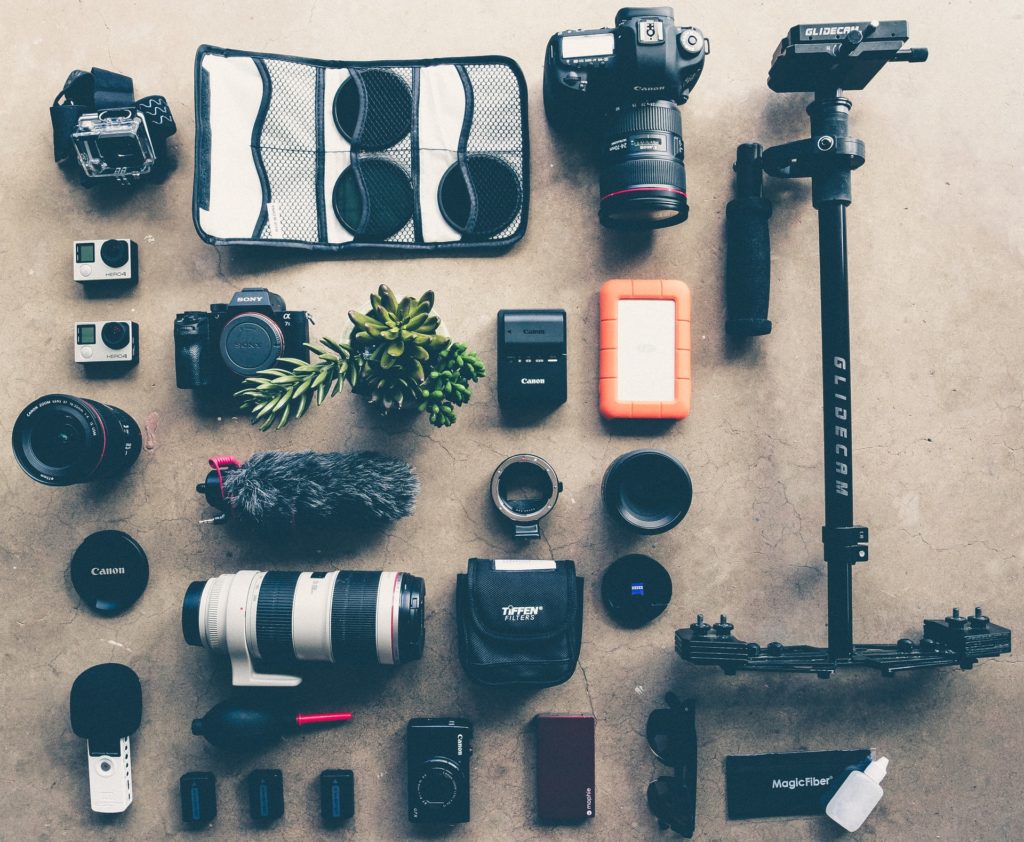
But the other part of “the making” was “the critique.” And let me tell you… it was brutal. The centerpiece class of the program is “Narrative Workshop” where twice a week the entire class would watch two shorts and critique them while the filmmakers sit silently on stage and listen to whatever anyone had to say, good or bad. And we’re not just talking broad story stuff, or scene stuff. It was all of that AND “I don’t understand why you were tracking in that shot when the character is in this state of mind, it should have been an 85mm on sticks and then cut when you blah blah blah” or “man… that choice to make the curtains red instead of green was really on the nose, don’t you think? It completely threw me out of the experience.” Whether the feedback was right or wrong, I was getting all of that really granular technical stuff that you don’t really get with more informal education. You absolutely CAN learn that on your own, but most people don’t get there without help. I certainly wouldn’t have, anyway.
It was a real Hunger Games kind of environment at times—ultra-competitive, ultra-critical, occasionally ultra-rewarding. But it was the first time I was forced to sit and listen to people thoroughly critique my work from every conceivable angle—films which I was dedicating every ounce of energy I had toward making. So it was really hard to hear sometimes. But it made me more resilient. It also taught me how to listen to and give feedback, and how to thoroughly analyze my own work.
But more than anything it really drilled into me the idea that every single thing in a movie is a choice. It turned what used to just be instincts and taste into a full technical toolbox. It taught me how and WHY to make filmmaking decisions that before I was just winging. Every single shot, cut, piece of wardrobe, every lens—every single thing CAN tell the story… so how can you harness that language to tell the best version (or YOUR version)?

The primary “philosophy” of our program was “Narrative Point of View” which is basically trying to understand how to guide the audience through a story by placing them within the experience of your character. It gives you a framework for how and why to make those decisions I mentioned above—what’s the character doing/thinking/feeling? What do they want? What’s their conflict? Now how do you photograph it? If a character wants X, where do you put the camera to tell that story? How do you dramatize that specific point of view with a camera/blocking/wardrobe, etc. so that an audience isn’t just watching it, but they’re feeling it? So that education really gave me a vocabulary to really grasp film language, from the foundation of Narrative POV.
The least valuable thing was debt. That’s a whole ‘nother blog post. But I’ll say that for me, I was fortunate enough to be able to take on the debt of grad school at the time. And the experience was worth it to me. But the money is obviously a gigantic obstacle and the deciding factor for most people. It should not be that expensive. Everyone who wants a formal education should be able to get it without crippling their finances. But sadly, that’s just not the case right now.
The last thing I’ll say on that is that I saw it as betting on myself. I put skin in the game—a LOT of skin. And now I’m out here trying to work it off. But I’m working it off, slowly but surely.
How has dropping out of or graduating from film school helped contribute to your long-term career goals?
H: By dropping out I was able to take on full-time gigs on shows as well as be able to help friends out on their passion projects. Each of these will help grow my career in different ways, whether it be meeting new people on different shows that may lead to future work or by honing new skills on passion projects with much less risk. Having these opportunities without being bogged down with classes or homework makes it infinitely easier to try and grow my career.
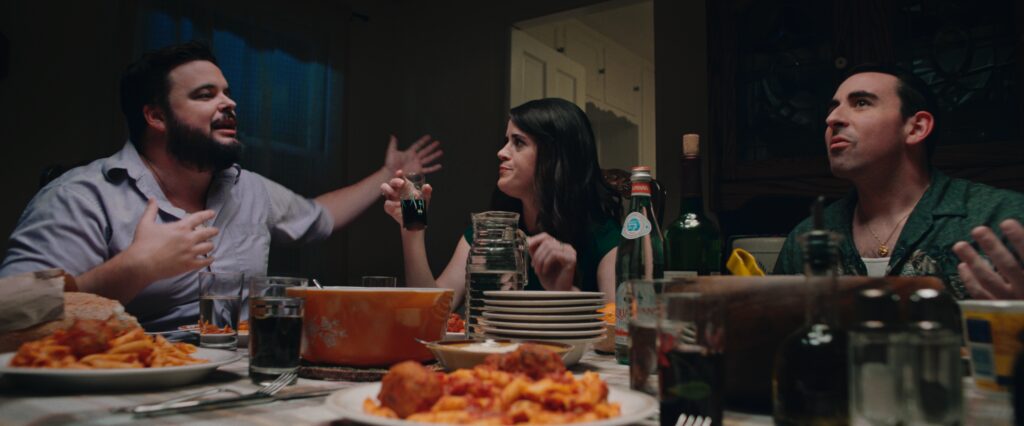
K: AFI has a very good reputation in Hollywood, so early on that definitely helped in certain ways—people would take me 10% more seriously when I was pitching because they knew that even though I hadn’t directed a series or a feature, I’d had a concrete education that simulated that experience to a degree. So since leaving, I’ve been lucky enough to convince some people to trust me with their money. And I think that the foundation at AFI was essential. But it certainly did not “get me any gigs” on its own merits. Maybe it did for some people, but for me, it was just a little boost.
But I think more than anything it gave me confidence. I felt leaving school that I could talk shop with anyone, and I could really walk the walk on a technical level in a way that I was so far away from a couple of years earlier. So when I was in those rooms pitching, I really did (and still do) believe that I could do it. It made the whole ethereal idea of being a pro director feel way more tangible.
Did it directly lead to jobs? No. Was I prepared for all of the other non-story, non-technical aspects of being a professional filmmaker? No. I wasn’t. After getting out of a program like AFI, you need some time to readjust to the real world. You need time to learn how to just navigate normal life again. And forging a sustainable career is an education unto itself—one I’m still very much learning… slowly. But that’s just another education I was eager to get as I go, knowing that at least I didn’t have a major technical deficit anymore. I felt like if I got an opportunity, I could really, fully hit it out of the park. (I’m probably wrong a lot of the time. But I would say that in an industry that can be relentlessly brutal and unkind sometimes, having a high level of technical and storytelling proficiency to fall back on is like one of those weighted anxiety blankets. It doesn’t solve the problem. But it can help).
Anything else you’d like to add?
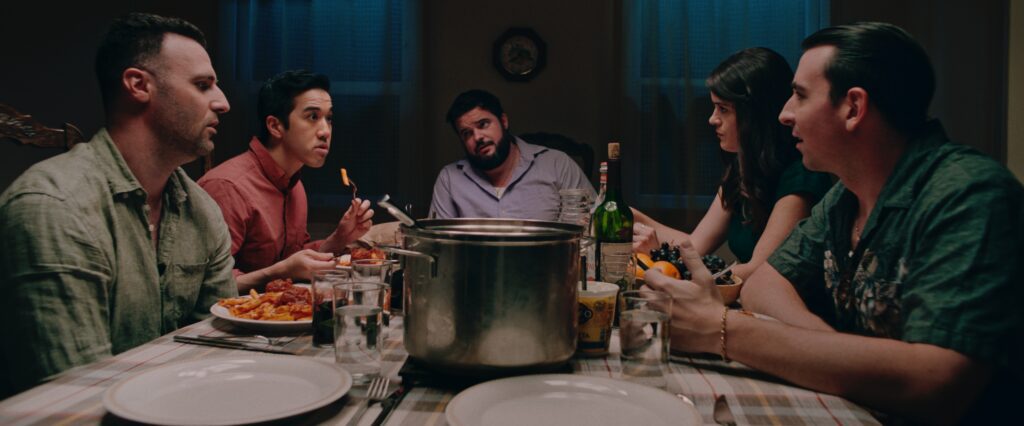
H: I just want to say no one has ever asked me for a resume before I get hired on a job as a grip or any set technician job. All they have really cared about was either the last job I worked on and a recommendation from another crew member. Just remember to work hard and be nice to other people, because you never know who’s going to get you a job one day.
K: Again, my experience is just that—my experience. That’s the only authority I have on the matter. I don’t know what it’s like for other people. When you see the credits of any show or movie, most of those folks did not go to film school, and they’re doing just fine. It is absolutely not necessary to go. But I am so glad that I did. Just from a time perspective… we’re all just trying to make it in our way in our own lives. And opportunities to dedicate yourself fully to learning a craft without the pressure paying bills grow increasingly rare the older we get. So for me, it was an amazing and invaluable experience. It was two and a half years of just making movies and learning how to make them better, without interruption. It was grueling at times. But I grew more at that time than at any other time in my life, and I wouldn’t trade it for anything.
Lastly… We wouldn’t have been able to make SUNDAY DINNER without The Film Fund, so thanks again! And cheers on the entire initiative you have going. I think as the industry continues to consolidate around Death-Star level mega corporations, opportunities like this for up-and-coming filmmakers will only continue to be more precious.
If, like Kevin, you have a short film you need help funding, check out our funding opportunities for the chance to win up to $10,000 in gear and funding.
A lot of what makes or breaks a film school experience is specific to the person and the program. But we hope hearing from two people who made different decisions regarding film school has been helpful for you who might be deciding the same thing.